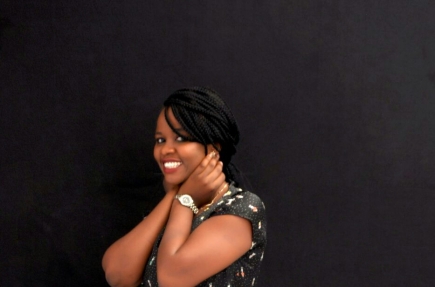The adulation and objectification of Women (aka Shorty, Ukwu, Waist, Ada, Mama, Baby, Bebe) in the hip-hop industry, is a daily subject that masculates the musicality of the masculine artists in this genre.
Once a vixen got lectured on the visibility of misogyny in the hip-hop industry and was asked how it feels to be the subject of hyper-sexualisation and objectification. Well, all she wants is her money and this of course, aligns with the feminist theory of Bodily Autonomy, as long as she is of age to decide what she wants to be, video vixen or rocket scientist, all join.
But then this could also bring about the question: How does one differentiate trying to fit into the image of the woman as a sexual objectfrom when a woman is sexually empowered?
Usually, when a woman is not being sexually objectified in the music industry, she is depicted as Miss Needy; the beggar who sticks to a man because of money or Miss Bitchy, the woman who uses her sexual wiles to take everything a hardworking man has spent all his life gathering. This has been delineated in songs like PSquare’s Chop My Money. Atimes the woman is portrayed as this totally innocent person who has absolutely no need for material wealth, but only NEEDS to be loved. This is encapsulated perfectly in Davido’s ‘Aiye’ – she no wan Ferrari, she no wan designer, she say na my love o!
Whether she’s an angel or a bitch, the woman portrayed in almost all the songs, produced in the Nigerian music industry, is almost, always IN NEED of something,
But, this is not about PSquare or Davido or any other artist that may or may not have contributed to the longevity of misogyny in the music industry. This is about Kiss Daniel and his ‘single hit’ called Mama.
This Mama, who is a reflection of a built beauty; tall and thin, silky and smooth skin, seamless straight hair and hair-extensions, becomes the role model of the African woman. You must take note that she is not only unconventionally perfect, she is also always available to use her perfect body parts to make you feel better about yourself. She is not thinking, well… nobody expects her to think . She is a thin thing begging to be entertained, but then she doesn’t say it, she should be seen and touched, but not heard. So, she uses her sexualized parts to paint an ideal picture, where she fits in perfectly as an object; an object that is desired because of her nudity and the beauty she had to nearly kill herself to attain.
Women’s depiction in musical videos doles out expected behaviour for the woman, just like the stereotype that stands taller than the true story. A good woman is the woman who cooks all, and not the woman who knows all. She should be primed and neat, reserved and hot for her lord only. And for Kiss Daniel to really know if this woman cherishes him or not, all she has to do is wash his plate.
He is the seeker, she is the prize. Although he has seen all the qualities he needs in her (being that marriage is the ultimate reward a man can give a woman), she still needs to wash his plates in order to prove her worth, and also fetch water.
The reason Kiss Daniel emphasizes these two very important domestic activities is because nothing shows love than for a woman to shun all gadgets like dishwashers and pipe borne water in favour of drawing water directly from a well and hand-washing all HIS dishes.
To be Kiss Daniel’s Mama, biko my sister, fetch water for him and wash his plates!
Where Kiss Daniel veers off from the usual narrative that’s the staple of the male dominated Nigerian music industry is that he did not put her in a position of NEED, in this case, Kiss is the supplicant and she the one doling out the cash.
She can afford to buy him an Infinity. She is not a lover in need. She is not Miss Dependant, she is Miss Independent. .
Adichie avers that masculinity is a hard, small cage, and men are placed in this hard small cage. The truth remains that strength ought not to be measured for any gender, and Kiss Daniel notes that he can be in captivity. This song is noteworthy because it stands out in this one aspect, although it fits in, with every other narrative that seems to oil the wheels of the Nigerian Music Industry.
And with this glowing review, Kiss Daniels might get bolder and admit, one day, that his ‘Mama’ doesn’t necessarily have to handwash his underwear to prove her love to him.
Or P-Square might end up singing –She can chop my money,She no wan chop my money, Cos she got her money
Peace out!


I always loved that song, but didn’t fully understand it with my roadside Yoruba. Nigerian music is highly entrenched in misogyny, so I guess by that standard, “Mama” is quite a breath of fresh air. The video was also quite moving. Another song of his “Laye”, which featured the same actress in the video was also quite romantic in a way I can’t find fault with.
LikeLike
This is the reason I am led to think the song of FEMINISM is fading out. time to play another song. no one is listening to that over-played song anymore.
LikeLike